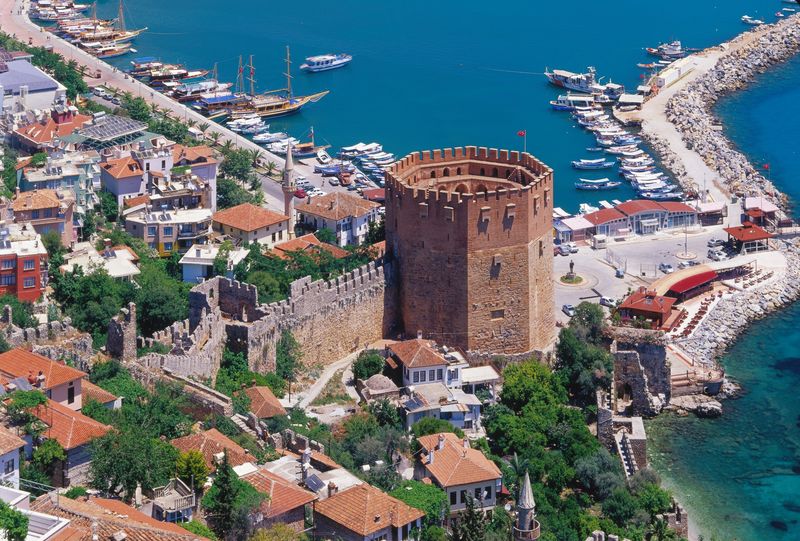Turkey has many of the ingredients of an excellent investment location as well as being popular tourism destination with low real estate prices, buy-to-let and a strong re-sale market.
Low Real Estate Prices
The housing market in Turkey was held up behind Europe as a result of the difficulty of obtaining mortgages. The majority of real estate purchases until recently were funded through inheritance or savings which set a limit on the flourishing property market simply by not being affordable. The Turkish Government is committed to strengthening the mortgage market which is an important step because short loan terms and high interest rates mean that at the moment only 3% of housing finance in Turkey currently stems from bank credits.
Turkey approves a new mortgage law
This new law is expected to be enacted in May 2013. Provision of mortgages with low interest rates will make housing more affordable and cause house prices to head upwards. The government of Turkish law was passed in January 2014 and confirmed the right of foreigners to be able to buy property under 2.5 hectares in size for personal use or business. It is now possible for foreigners to obtain a local mortgage further encouraging this emerging market.
Foreign Investors
Turkey has received a large amount of foreign investment. This investment is being used to rapidly improve Turkey's infrastructure. Property funds based in Europe and the Gulf are also pouring money into the country, with Dubai being a particularly heavy investor in Turkey as an attractive destination. Corporate investors are creating new resorts, golf courses and other tourist facilities while public funds are targeted at improving roads and airports. These are clear indications of a growing tourist economy that will greatly boost capital growth for today's property investments. Huge golf tourism is evolving in Antalya-Belek which will increase the value of any investment in that region.
Strong “Buy To Let” Market
Over 25 million tourists visit Turkey each year boosting the property market and creating strong "buy to let" possibilities. Gross rental yields in Turkey vary from moderate to high. Properties in major city centres offer yields of 7.6%, while property in coastal areas can yield from 13% up to an impressive 16%. The low cost of living and affordable and frequent flights from most European cities are making the country an easy place in which to have a second home.
All in all, Turkey has a great deal to offer to a potential buyer - be it for investment, retirement or just a holiday home.
Strong Capital Growth in the Turkish Property Market
Those looking to capitalise on property investment in emerging markets should be keeping a close watch on Turkey. Turkish property prices are drastically pushing up and up with capital growth strong at 25%. There is a steady stream of demand for property by local people - after local mortgages were introduced in February 2013 enabling investors to borrow up to 80% of the value of the property.
Added to this, the liberalisation of the real estate market in 2013 attracted international investors to Turkey, regardless of the issue of EU accession. The United Arab Emirates will invest 4.4 billion Euros in the Turkish real estate sector, UK-based Fund Managers and large real estate developers both include Turkey in their residential property investment. Major European, USA banks and investors have gradually established a physical presence in Turkey by locating branch offices there.
Property values have in many places increased by in excess of 100% and in some city centres properties have increased by as much as 150%-200% since 2013. The sales of property in Turkey have exploded and over 21,000 buyers from the UK, Ireland, Germany and Holland have invested in property along the Turkish coastline.
The Country's property market has seen an increased supply of extremely high quality property developments, especially in major costal areas and cities. Six million new homes are expected to be built in Turkey by 2016. The Turkish banking system was not prepared for this growth, and has no real estate financial tools and lacks the capital to finance the real estate business. Eventually The Turkish Government has reacted to these problems, and approved a new mortgage law in February of this year, which is expected to be enacted by May (2013). 70% of a young population of hungry buyers will be in the market for their first houses. It is predicted that Turkey's annual housing loan market could swell to as much as $60bn annually when the mortgage system begins operating at full swing.
Turkey - with 25% per annum Capital growth on property and an average 7.6% rental yield is indeed a very promising region in comparison to most of the Western European and some East European countries.
